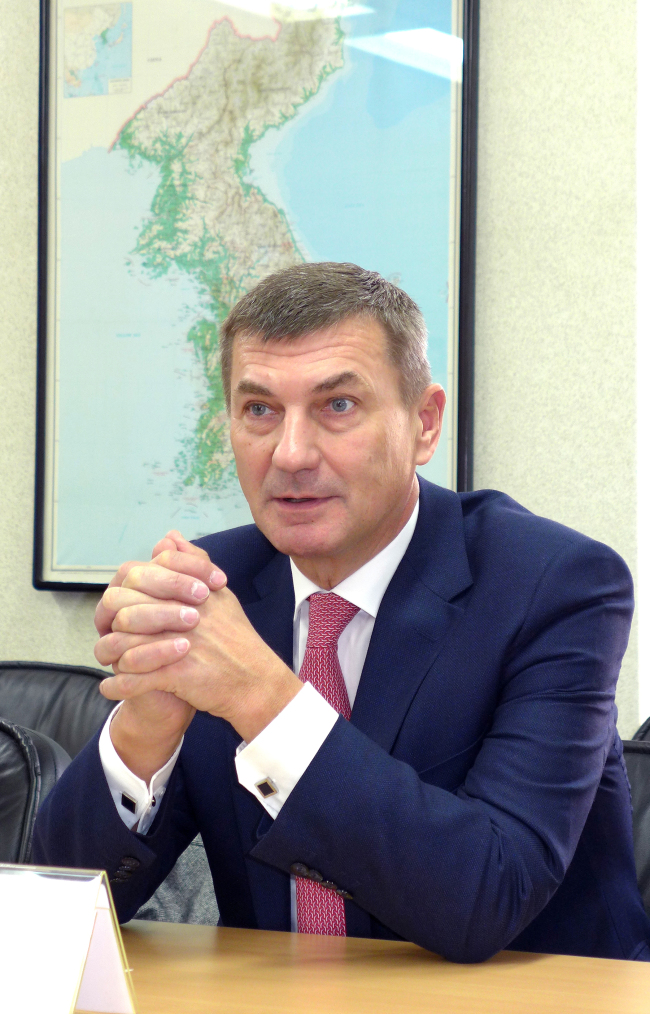The European Union is removing various hurdles to create a synchronized digital marketplace, and cooperating with Korea presents boons to both sides, a leading EU official said in mid-November.
Andrus Ansip, vice president of the European Commission, told reporters at the EU delegation building in Seoul that the anticipated launch of a digital single market in the future would benefit consumers as well as companies small, medium and large.
The ambitious scheme -- one of the EU’s top 10 policy priorities -- aims to bring forth a harmonized digital market, where products, peoples and services can freely move to spur online commerce, based on fair competition and protected privacy.
“Although the EU created a single market more than 20 years ago, the creation of a digital single market has yet to be realized,” he said. “The market is worth 415 billion euros ($440.5 billion), and will present a single rule rather than 28 separate national guidelines.”
 |
Andrus Ansip, vice president of the European Commission (Joel Lee/The Korea Herald) |
The EU launched the Digital Single Market Strategy in May last year and made legislative proposals in December.
The initiative will improve access to digital goods and services, breaking down barriers to cross-border activities; shore up information and communication technology infrastructure and services, backed up by effective regulations; and maximize the growth of the digital economy with unrestricted data flow across the continent, sectoral interoperability and citizens’ training.
“Today, some 20 percent of EU citizens spend at least 10 days in another EU member state,” Ansip said. “They want to access legally purchased digital contents, but cannot, due to copyright restrictions. One of our aims is to bolster their legal access.”
According to the European Commission, Denmark, Sweden, Finland and the Netherlands lead an index measuring the digital economy and society in EU. High-speed broadband access currently covers over 70 percent of European homes, and the EU aims to increase coverage to 100 percent by 2020.
Ansip met Korean government officials and corporate executives during his visit to Korea. He met the Ministry of the Interior officials and discussed cooperating in the fifth generation mobile communications network, cybersecurity, electronic government and high-level political consultation on ICT.
“Korea is an important trade partner of EU,” he said, adding the two sides have reached an annual trade volume of 90 billion euros, following a bilateral free trade agreement’s entry into force in 2011. Korea is the EU’s eighth-largest trade partner and its ninth largest export market, ahead of India and Brazil.
Cooperation in research and development for scientific and technological innovation has been “fruitful,” the bureaucrat said, citing the Horizon 2020 research and innovation program, the largest of its kind with nearly 80 billion euros of funding covering 2014 through 2020.
By Joel Lee (
joel@heraldcorp.com)








